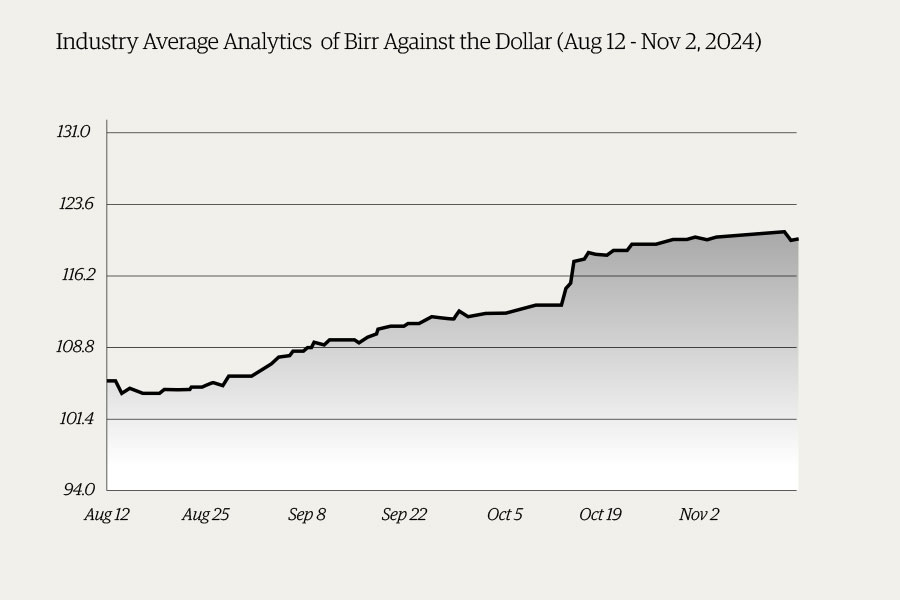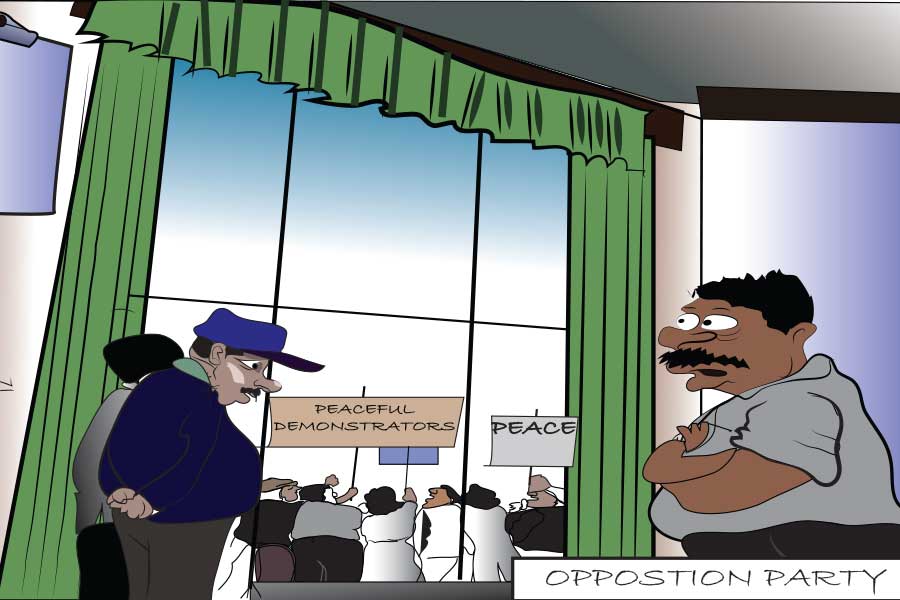
Editorial | Nov 06,2021
Apr 3 , 2021
By Eden Sahle
Over the weekend, among the people who lost their lives due to the Novel Coronavirus (COVID-19) pandemic was my Sunday school teacher, a husband and father of four young children. It is terrifying and sad; even harder to imagine what the families of those who lost their loved ones must be going through.
Surprisingly, even though dozens are dying and thousands are being diagnosed with the virus every day, with a double-digit infection rate, it seems to be barely making a dent in the public’s perception of the dangers of the disease. Misunderstandings and misinformation about the disease are causing the loss of lives, adding to an already poor public health record for the country.
Better late than never, the government has introduced restrictive rules to curb public apathy. It includes mandatory mask-wearing in public and the gathering of people no more than in groups of 50. The violation of either carries a prison sentence.
It is to be seen if these measures will work, especially considering the attitudes of some people. Without going through testing, many people in Addis Abeba justify their negligence by insisting that they must have been infected sometime in the past year and eventually developed immunity. This is despite scientists’ warning that those previously infected may only develop temporary immunity; they are not necessarily protected from new variants of the virus.
For many people, the daily death and infection reports seem irrelevant, as if the virus will not reach them. They do not feel responsible, but they are nonetheless complicit in the spread of the virus taking many lives. Even after the new restrictive rules were put in place, negligence has not eased. Many people on the streets, public transport and restaurants are seen without masks.
Some countries have proved that the spread of this virus can be significantly slowed or even reversed by implementing robust control measures. This is aggressive enforcement of social distancing rules and general hygiene. Indeed, the economy is not in a condition to carry out lockdowns; peoples’ livelihoods depend on this. But neither is it possible to ignore what is a new wave of the pandemic in the country. With about 800 people in intensive care, the country has run out of beds and oxygen tanks. As we speak, hundreds are fighting for their lives, struggling to breathe.
To reverse the health crisis, the public needs to comprehend what a sudden spike in infection rates and people in intensive care means. The ongoing awareness creation campaigns and strict rules on social distancing and hygiene ought to incorporate the many examples of tragedies and costs of irresponsibility.
Perhaps more than ever before, we must be conscious of our actions and how they affect us and others. For anyone paying attention, negligence impacts our health and others more than at any other time. The business-as-usual attitude kills. Everyone must be awakened to the reality that our health system infrastructure is grossly inadequate; even before the pandemic hit, it was unable to respond to all pressing healthcare issues.
This is why prevention is always far more successful in saving lives and cost-effective than dealing with the disease in its full force. Unfortunately still, the Ministry of Health has a long way to go to eradicate superstitions among the public. It has to alert those who are struggling to acquire the understanding needed to protect themselves and others.
The new rules in place are an excellent place to start. It reminds people that there are consequences to being irresponsible. It should be combined with officials carefully considering how they present themselves in public. Vaccinated or not, they should appear with masks and keep two-metre distances from one another.
In the time of COVID-19, ignorance breeds fatalities. The crisis is not something to be ignored carelessly as it is a danger taking away precious lives around the country. The public must be informed of realities clearly to portray the implications of their actions and inactions.
PUBLISHED ON
Apr 03,2021 [ VOL
22 , NO
1092]

Editorial | Nov 06,2021

Money Market Watch | Nov 16,2024

Editorial | Sep 28,2019

Radar | Dec 05,2020

Editorial | Feb 05,2022

Viewpoints | Apr 20,2019

Covid-19 | May 09,2020

Editorial | Aug 21,2021

Commentaries | Mar 02,2019

Viewpoints | May 15,2021

My Opinion | 131819 Views | Aug 14,2021

My Opinion | 128203 Views | Aug 21,2021

My Opinion | 126147 Views | Sep 10,2021

My Opinion | 123767 Views | Aug 07,2021

Dec 22 , 2024 . By TIZITA SHEWAFERAW
Charged with transforming colossal state-owned enterprises into modern and competitiv...

Aug 18 , 2024 . By AKSAH ITALO
Although predictable Yonas Zerihun's job in the ride-hailing service is not immune to...

Jul 28 , 2024 . By TIZITA SHEWAFERAW
Unhabitual, perhaps too many, Samuel Gebreyohannes, 38, used to occasionally enjoy a couple of beers at breakfast. However, he recently swit...

Jul 13 , 2024 . By AKSAH ITALO
Investors who rely on tractors, trucks, and field vehicles for commuting, transporting commodities, and f...

Jul 5 , 2025
Six years ago, Ethiopia was the darling of international liberal commentators. A year...

Jun 28 , 2025
Meseret Damtie, the assertive auditor general, has never been shy about naming names...

Jun 21 , 2025
A well-worn adage says, “Budget is not destiny, but it is direction.” Examining t...

Jun 14 , 2025
Yet again, the Horn of Africa is bracing for trouble. A region already frayed by wars...

Jul 6 , 2025 . By BEZAWIT HULUAGER
The federal legislature gave Prime Minister Abiy Ahmed (PhD) what he wanted: a 1.9 tr...

Jul 6 , 2025 . By YITBAREK GETACHEW
In a city rising skyward at breakneck speed, a reckoning has arrived. Authorities in...

Jul 6 , 2025 . By NAHOM AYELE
A landmark directive from the Ministry of Finance signals a paradigm shift in the cou...

Jul 6 , 2025 . By NAHOM AYELE
Awash Bank has announced plans to establish a dedicated investment banking subsidiary...